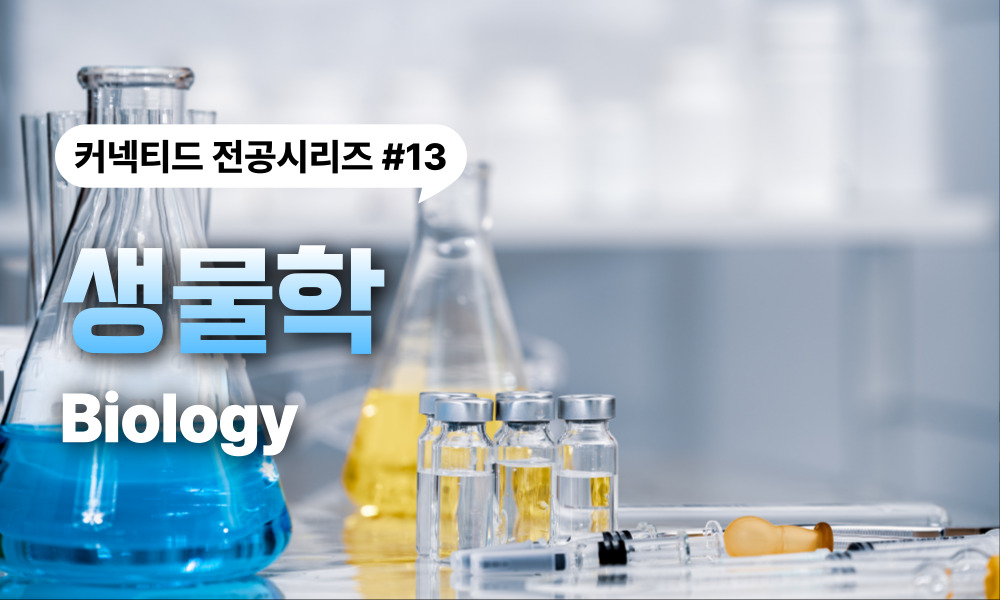Major Series #9 : Pharmacy
Q. How is pharmacy program in US comprised?
In US, there are more than 3,000 four-year colleges, but only about 130 of them offer pharmacy courses. As a result, enrollment in pharmacy school is very competitive. In general, to earn Doctor of Pharmacy, in other words, Pharm D degree at a pharmacy school in US, students must take prep course of at least two years at general colleges. Then, the students must take PCAT (pharmacy exam) and complete a four-year professional pharmacy course (college curriculum : professional phase). In addition to such 2+4 programs, there are 0+6 programs and 3+4 programs. Of the 130 pharmacy colleges, 10 of them have 0+6 pharmacy programs, and 15 schools have 3-year accelerated programs.
· 0+6 Program
The program is an integrated pharmacy program that starts with undergraduate program and graduates from graduate school of pharmacy. In general, high school graduates wish to enroll in pharmacy school apply. 0+6 program, which does not require professional experience such as experience at a pharmacy, is advantageous for international students, which leads to low acceptance rate. Most 0+6 programs allow students to go straight to pharmacy without taking PCAT if the student maintains a constant GPA. However, not all colleges do the same.
·2+4 / 3+4 Program
It is a program that the students enroll in graduate school of pharmacy after completing the prerequisite courses required by the College of Pharmacy for 2 or 3 years and earning GPA above a certain level. While it sometimes requires PCAT, pharmacy experience, essays, etc., some schools do not require PCAT. International students are required to prepare a language test such as TOEFL or IELTS. Prerequisite credits and PCAT scores of international students tend to be higher compared to those of local students. However, they may have difficulty during interviews due to lack of pharmacy experience.
·3-Year Accelerated Program
The program has advantage of which the students can complete the 4-year course of pharmacy in just 3 compressed years. However, the class schedule is tight so that students may have difficult time keeping up with the course works if the student is not fluent in English. 0+6 and 2+4 programs do not require a bachelor's degree, however, some 3-year accelerated programs may require bachelor's degree.
● What would I mainly learn in school of pharmacy?
Based on the curriculum of 6-year college of pharmacy, the 1st and 2nd years are considered to be time to develop basic skills rather than specialized knowledge. Students mainly take required liberal arts courses such as biology, chemistry, physics, organic chemistry and English. From 3rd to 5th years, students will learn specialized pharmacy knowledge, and they will learn a wide range of topics including biochemistry, pharmacology, pharmacology, toxicology, and pharmacology. In the 6th year, students learn mostly practical exercises and are prepared practically to work as a pharmacist in the field.
● For most international students, it is said that 0+6 program is more advantageous. What should I prepare for?
Most colleges in US basically classify math and English as important subjects. Followed by these, basic subjects such as chemistry, physics, and biology are also emphasized. To enroll in a pharmacy school, basically, students must complete high school chemistry and biology courses, and physics courses are optional. In addition, students will need to prepare SAT or ACT, TOEFL, extracurricular activities, essays, letters of recommendation and more.
● Does it require high SAT or ACT test score to enroll in 0+6 or 2+4 programs?
In general, when one thinks of pharmacy, it may seem that it requires high profile like a medical school. However, the standardized test scores are surprisingly low that it may be surprising in reality. Certainly, some schools require relatively high test scores, like Northeastern University. However, Florida A&M University requires an average GPA of 3.26 and SAT score of less than 1200. It is generally lower than the average profile of students attending prestigious state schools such as UIUC, Purdue or Penn State. However, students who wish to enroll in pharmacy school must have clear conviction in their career path. If the student simply enrolls in the school because it is stable and high paying field, it is often difficult to keep up with the class works. In particular, students who are not confident in science, such as chemistry and biology, the applicants should carefully reconsider their choices of the enrollment.
● How should I prepare for prerequisites and college GPA required by the school of pharmacy?
Undergraduate program does not affect the major. There are many who major in biology, chemistry, and biochemistry. However, it is not guaranteed that those majors are more advantageous than non-science majors. Rather, it may be more advantageous if a student chooses a relatively easier major and takes only the prerequisites required by the pharmacy school and has high GPA. The most important factor for enrolling in pharmacy school is college GPA, and it must be at least 3.6 for stable enrollment chance. In addition, GPA for general departments and GPA for science subjects are divided, and GPA for science subjects is weighted more than that of other subjects. If the student has high overall GPA and low science score, the student is less likely to enroll in top-ranked pharmacy schools in US.
● Examples of prerequisite required by school of pharmacy
In general, required prerequisites are about 60 credits, and more than 50 of those credits are composed of science-related subjects.
•English Composition 4 Cr
•Chemistry I&II 8 Cr
•Organic Chemistry I&II 8 Cr
•Biology I&II 8 Cr
•Anatomy / Physiology 6 Cr
•Microbiology 4 Cr
•Calculus I&II 6 Cr
•General Physics 4 Cr
•Economics 3 Cr
•Statistics 3 Cr
•Biochemistry 3 Cr
•Immunology 3 Cr
· How is the job prospects in US after graduation from pharmacy school?
Currently, pharmacists in US are saturated. However, outside of the metropolitan area, there is still constant demand for them. The odds of getting a job as a pharmacist in US as an international student are about 50:50. Certainly, becoming U.S. citizenship is the most reliable and ideal way, but it is not an easy feat. So graduates should prepare many ways to get a job. In US, experience in pharmacy is highly valued. Even if the student graduates with excellent grades from a pharmacy school, he/she may find it difficult to get a job if the student does not have enough experience. Therefore, the student should be able to gain lots of experience during the school years. According to statistics of graduates of Massachusetts College of Pharmacy and Health Sciences (MCPHS), which is one of the most famous pharmacies in US, 70% of graduates are employed as pharmacists with own pharmacy, 20-25% are clinical pharmacists, and 5% are employed in production and other fields.
· How does US pharmacist license test take place after graduating from the pharmacy school in US?
The graduates should take NAPLEX (North America Pharmacist Licensure Examination), a test administered by National Association of Boards of Pharmacy (NABP). The exam can be taken by graduates who have completed internship after graduating from pharmacy school in US. After passing NAPLEX, the graduates can take MPJE (Multistate Pharmacy Jurisprudence Examination).
· How much is the average salary of a pharmacist in US?
According to PayScale, average salary of a pharmacist in US ranges between $110,000 to $120,000. After the 5th year as a pharmacist, they may earn an annual salary of about $120,000. In US, geographic location is also important. salary of pharmacists in California is increasing. However, pharmacists in other regions have experience decreased salary. In recent years, salary for pharmacists in Philadelphia in the east has increased, and the salary of those in Georgia in the southern region has decreased slightly
TOP 3 pharmacy schools in US
Harvard University
·Expected tuition : $51,920
· Harvard Medical School is a medical school in Massachusetts, USA. Founded in 1782, it is the third oldest medical school in US, offering programs such as M.D., Ph.D. and comprehensive programs of M.D.-Ph.D. The school is ranked 1st in research, 2nd in internal medicine, and 2nd in pediatrics among medical schools in US
·School feature : Harvard University School of Medicine is dedicated to excellence and leadership in medicine, education, research and clinical care. To guarantee the success of entire members of the school, it offers programs focused on collaboration and service, diversity, respect, integrity and responsibility, life-long education, health and balance.
University of California, San Francisco
·Expected tuition : $50,981
· Purpose of medical education at UCSF is to cultivate medical professionals who can improve the health of our local communities and relieve patient’s disease and suffering. Program objectives of UCSF School of Medicine Bridges curriculum are defined by 7 core capabilities including patient management, medical knowledge, practice-based learning and improvement, personal and communication skills, expertise, system-based practice, and inter-professional collaboration. Faculty also innovate medical education and support patient care to reflect actual needs of patient.
·School feature : At UCSF, students are educated to access health care issues with critical thinking and research spirit, and build passion for health promotion in the local community. Bridges curriculum provides students with various training and opportunities for clinical experience to make an immediate and effective contribution in the field.
University of North Carolina, Chapel Hill
·Expected tuition : $36,160
· University of North Carolina, Chapel Hill, has a four-year curriculum for medicine. Students can strengthen their learning with optional summer courses, and may study abroad. Students in junior year must complete their learning at UNC hospital system or at a partner hospital. With more than 50 student organizations and various community service groups, there are ways to get involved outside the classroom. The school’s Pharm.D. program is offered in both Chapel Hill and Asheville campuses.
·School feature : Doctor of pharmacy is a 4-year program that prepares students to become the professional healthcare leaders of the future. Graduates work in a wide range of practical settings including hospitals, clinics, pharmacies, pharmaceutical and biotech industries, government agencies and academic fields
List of pharmacy schools



















